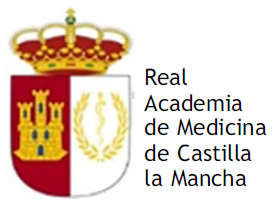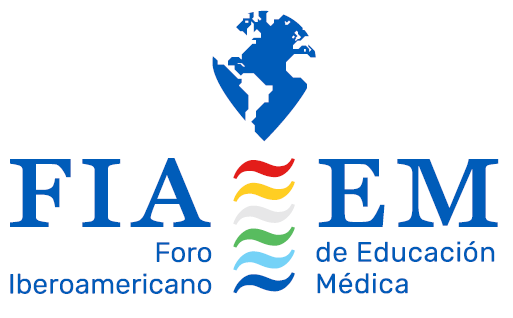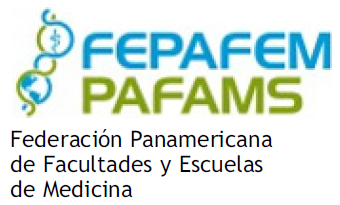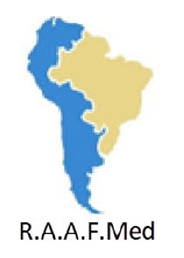Evidence-based medicine (EBM) training for pharmacists has been shown to improve information search and analysis skills.
MethodsWe developed a virtual course-workshop for community pharmacists (CPs) and used an online questionnaire to assess self-perceived of knowledge and clinical practices related to EBM.
ResultsTwenty-three participants completed the course-workshop. There was an increase in the adequate formulation of the PICO strategy at the end of the course-workshop (52.17%, n=12 vs 8.70%, n=2; p<.0019). While, in self-reported clinical practice, there was an increase in consultation of specialized databases (86.5%, n=45 vs 57.69%, n=30; p<.001).
DiscussionThe tele-education program was successful in improving self-perceived knowledge on the formulation of a PICO question and clinical practice related to EBM in pharmaceutical care.
se ha demostrado que la formación en Medicina Basada en la Evidencia (MBE) en farmacéuticos mejora las habilidades de búsqueda y análisis de información.
Métodosdesarrollamos un curso-taller virtual para farmacéuticos comunitarios (FC) y utilizamos un cuestionario online para evaluar la autopercepción del conocimiento y las prácticas clínicas relacionadas con la MBE.
Resultadosveintitrés participantes completaron el curso-taller. Hubo un aumento en la formulación adecuada de la estrategia PICO al final del curso-taller (52,17%, n=12 vs. 8,70%, n=2; p<0,0019). Mientras que, en la práctica clínica auto declarada, hubo un aumento en la consulta de bases de datos especializadas (86,5%, n=45 vs. 57,69%, n=30; p<0,001).
DiscusiónEl programa de teleeducación logró mejorar los conocimientos auto percibidos sobre la formulación de una pregunta PICO y la práctica clínica relacionada con la MBE en atención farmacéutica.
Evidence-based medicine (EBM) training for pharmacists has been shown to improve information search and analysis skills and strengthen the ability to provide evidence-based answers to real-world clinical questions.1,2 In primary care, community pharmacists (CPs) should be prepared in EBM to provide appropriate care and promote rational use of medicines through pharmaceutical care (PC) with pharmaceutical interventions.
The objective was to measure the self-perceived of knowledge and clinical practices of CPs after tele-education in EBM applied to PC in the province of Cajamarca, located in northeastern Perú and one of its poorest regions.
MethodsWe developed a course-workshop (August–November 2022) as a tele-education program in EBM for CPs caring for patients with chronic non-communicable diseases and working at the Dirección Regional de Salud–DIRESA of the Cajamarca region in Perú.
The Google-Classroom and Google-Meets platforms were used, consisting of 5 weekly sessions (an 1-hour theoretical class and a 4-hour workshop). Participants were divided into groups of 5, where they conducted group discussions supervised by a senior clinical pharmacist and previously trained clinical pharmacy residents. Sessions included: (i) PC procedure, (ii) advanced search for drug-related information, (iii) PubMed search using PICO (Patient, Intervention, Comparison, Outcome), (iv) search in other databases using PICO, and (v) pharmaceutical intervention plan.
A self-administered virtual questionnaire was applied before and after tele-education. The questionnaire was validated by experts and showed adequate reliability (KR coefficient >0.7).
The McNemar test for categorical variables, and the Wilcoxon test for quantitative variables were used. Results were statistically significant when p<.05. The study was approved by the Ethics Committee of the DIRESA Cajamarca (Perú), with code MAD 6661390.
ResultsTwenty-eight pharmacists enrolled and 23 completed the course. Among them, 65.22% (n=15) were women, with an average professional experience of 7.95±5.0 years (between 1 and 22 years).
There was an increase in the adequate formulation of the PICO strategy at the end of the course-workshop compared to the beginning (52.17%, n=12 vs 8.70%, n=2; p=.0019). However, the other components did not show a significant increase between the post- and pre-test: performing scientific information searches (73.91%, n=17 vs 7.83%, n=11; p>.05), interpreting statistical parameters: RR, OR, NNT (34.78%, n=8 vs 21.74%, n=5; p>.05), and applying EMB in clinical cases (56.52%, n=13 vs 39.13%, n=9; p>.05).
In the self-reported application of EBM in their clinical practice, significant increases were observed in the three aspects described in Fig. 1: p<.001 (Fig. 1a), p<.0001 (Fig. 1b), as well as p=.004 (Fig. 1c) per PC at the end of the tele-education.
Self-reported application of the EBM in the clinical practice of the participants before and after receiving tele-education: (a) Consulted specialized databases in the search for scientific evidence, (b) number of patients with pharmaceutical care by the pharmacist, and (c) number of ADR reported by the pharmacist.
Abbreviations: BC: before the course; AC: after the course; ADR: adverse drug reaction. For figures b and c, the median±interquartile range was presented in parentheses.
The tele-education program was successful in improving self-perceived knowledge about formulating a PICO question and clinical practice related to EBM in PC. These results suggest that this method can be effective in training EBM skills. Another important finding is the increase in the self-reported number of patients with PC and adverse drug reaction notifications. Several authors agree that clinical behaviors will be facilitated with the support of in-service training and EBM practice.3,4
Likewise, it is assumed that this change in their clinical practices was due to the interaction of PC with clinical pharmacy specialists. Pharmacists have been shown to have an information need for evidence-based counseling.5
The main limitations of this study were: (i) the reduced number of participants, (ii) health restrictions during the COVID-19 pandemic in Peru, (iii) limited access to information and communication technology, (iv) work overload in the management of medicines supply. A multicenter study with a larger population and longer duration will be conducted.
Our results suggest that tele-education may partially improve self-perceived of knowledge and clinical practice related to EBM in CP. It is acknowledged that response bias limits strength of conclusions.
FundingThis study has been self-financed by the authors.
Statement of authorship contributionGladys Delgado: Conceptualization, Methodology, Validation, Investigation, Resources, Writing – original draft, Writing – review & editing, Project administration, Visualization, Supervision. Cristopher Dávila: Conceptualization, Methodology, Validation, Investigation, Writing – original draft, Writing – review & editing, Visualization, Supervision. Anthony Bermejo: Investigation, Writing – original draft. Writing – review & editing. Guido Sardón: Investigation, Writing – original draft, Writing – review & editing. Xavier Munayco: Investigation, Resources, Writing – original draft, Writing – review & editing. Lady Villanera: Investigation, Writing – original draft, Writing – review & editing. José Salvador-Carrillo: Conceptualization, Data curation, Formal analysis, Writing – original draft, Writing – review & editing.
To Pharmacist Lizbeth Zavaleta, for her on-site coordination with the pharmacists of the Cajamarca Region and to the pharmacists who participated in the course.










